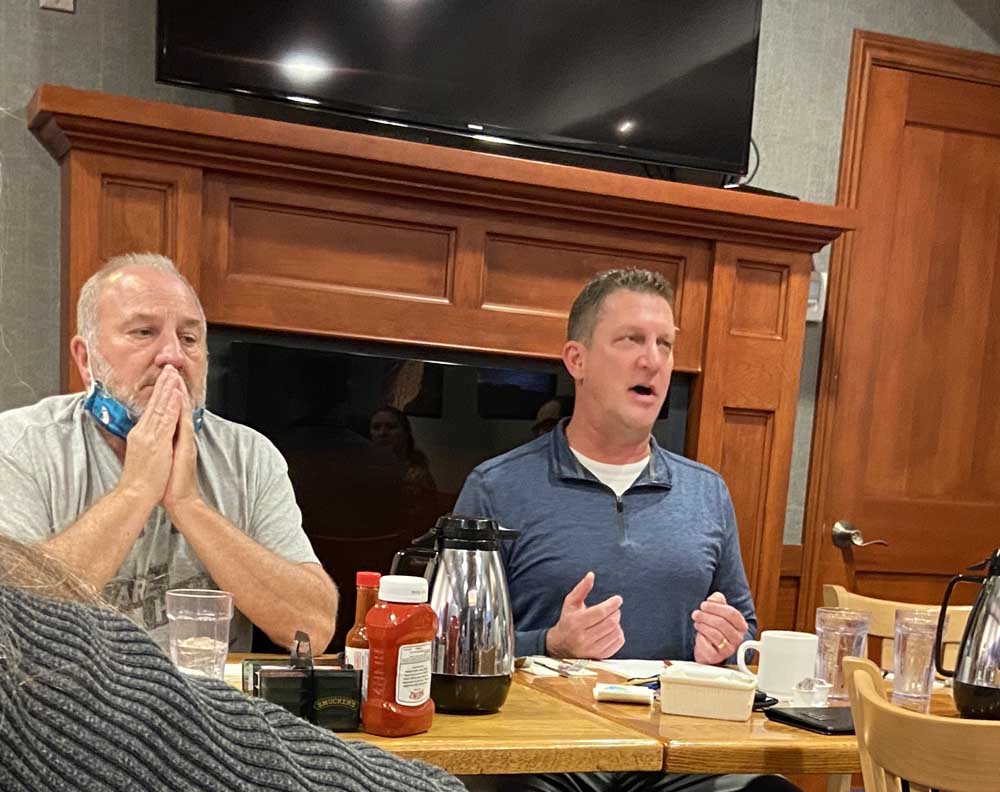Visitors frustrated by transients, drug activity at restroom
Published 4:00 pm Monday, September 27, 2021

- Keith Chandler, of the Seaside Downtown Development Association, and Ken Heman, of the Seaside Visitors Bureau, discuss problems around city restrooms.
For the Seaside Visitors Bureau, a neighboring restroom is anything but restful.
People sleeping, leaving behind trash and dealing drugs outside the visitors bureau parking lot are becoming more and more frequent, Ken Heman, of the visitors bureau, said.
Trending
Heman, speaking at a breakfast meeting of the Seaside Downtown Development Association last week, said it started out with five or six people sleeping outside.
“Now it’s getting to a point where we have vehicles that are taking a spot from the visitor center, open up doors, pouring their junk out, taking up three parking spots all day long on a Saturday and getting drunk,” he said.
Heman said he had witnessed people selling and using drugs directly outside of his window at the Seaside Chamber of Commerce.
“I know others would love some answers to why there’s certain things we can’t do and certain things we can do,” he said.
Outdated rules, the decriminalization of drugs and a series of federal and state court decisions limit law enforcement action, Police Chief Dave Ham said.
“To a certain degree, the state of Oregon has deprioritized these types of calls. But it doesn’t help with the livability of the community,” the police chief said. “Those conversations that are constantly ongoing.”
The 9th U.S. Circuit Court of Appeals, which covers Oregon, has ruled that ordinances against sleeping outdoors on public property when there are no shelters available are unconstitutional.
A new state law approved this year requires that local regulations on sitting, lying, sleeping or keeping warm and dry in outdoor public spaces be objectively reasonable for the homeless. The law aims to protect the homeless from fines or arrest for camping on public property when there are no other options. Cities and counties must comply by July 2023.
“That’s where ‘reasonableness’ is the word that everybody is using,” Ham said. “That kind of concession, so to speak, ‘We’re going to let you kind of be here now, because there’s nowhere else for you to go.’”
Heman said he had witnessed drug users block the doors to the restroom.
“Visitors back out and leave. Or they come to us and go, ‘Is there another bathroom I can use?’ I’ve gotten to that point where the only way we can get them to move on and get the hint that this isn’t the place to be is calling Dave.”
“These people, unfortunately, have a right to be able to rest,” Ham said. “They have a right to use public property. And there’s not a lot we can do about it.”






